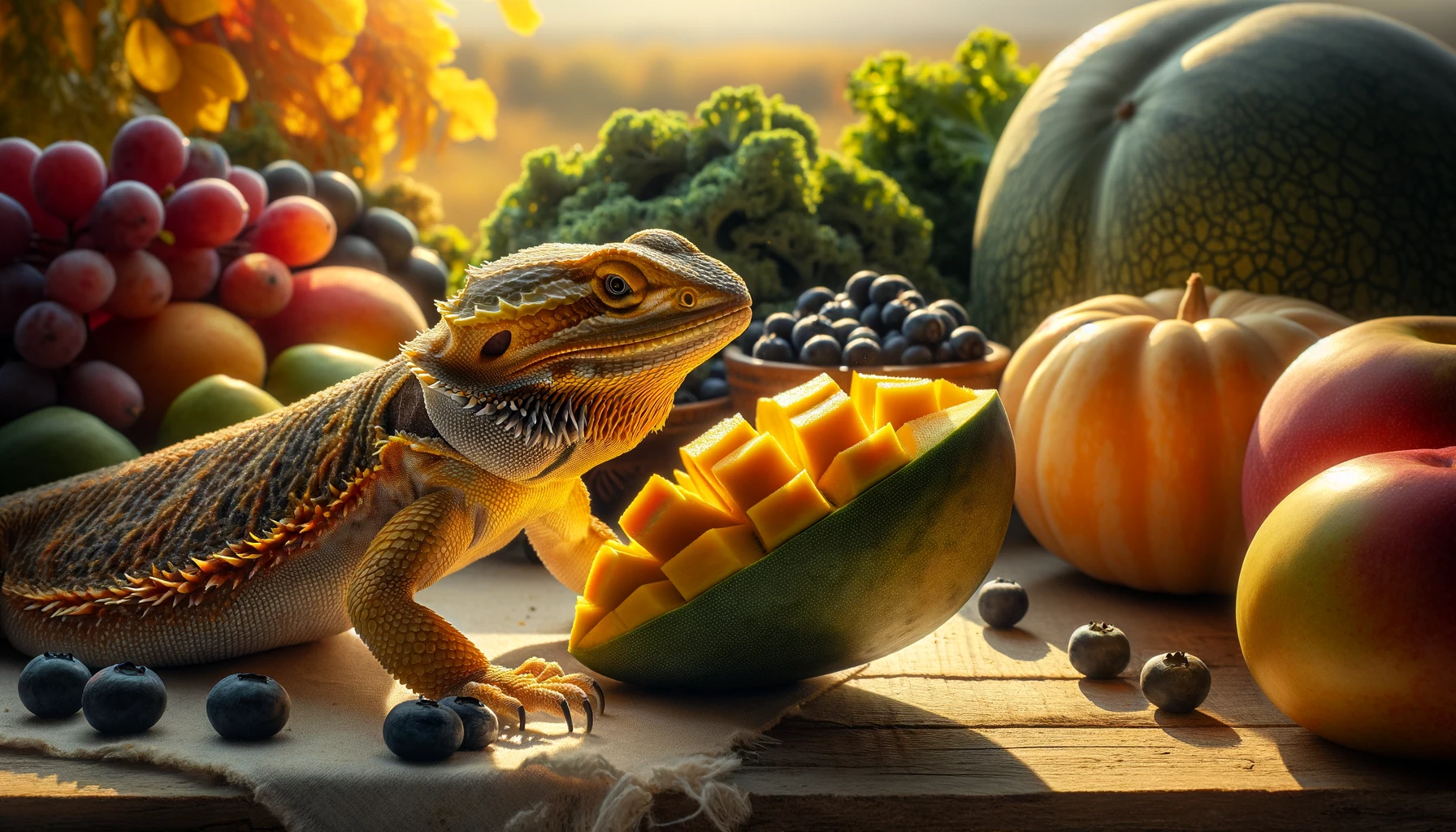While your bearded dragon may not be able to join in on your tropical-themed parties, whether they can partake in a slice of juicy mango has certainly crossed your mind. As a devoted reptile owner, you’re always eager to discover new and delicious ways to enrich your pet’s diet. But just how safe are mangos for your scaly friend? Let’s peel back the layers on this juicy topic and explore the benefits and potential risks of incorporating this tropical fruit into their dietary repertoire.
Bearded Dragon’s Dietary Needs
To ensure optimal health for your bearded dragon, it’s crucial to understand their dietary needs, which consist of a balanced mix of insects, fruits, vegetables, and adequate hydration. Insects like crickets and mealworms provide necessary protein, while fruits and vegetables offer essential vitamins and fibre.
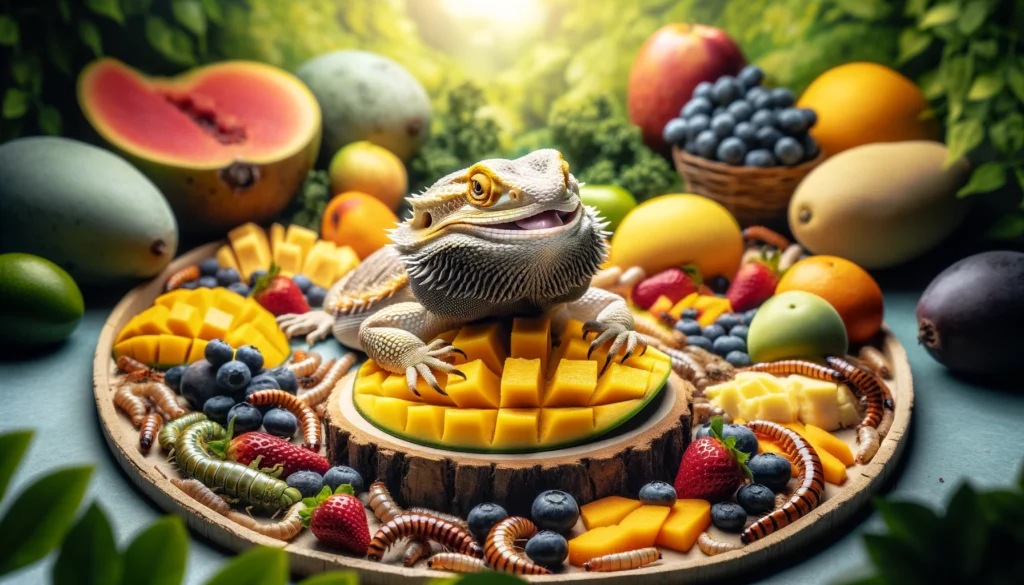
Your bearded dragon’s diet should be about 80% insects and 20% fruits and vegetables when they’re young. As they grow older, however, their dietary preferences shift, and the ratio inverts. Adult dragons prefer a diet mostly of fruits and vegetables, supplemented with the occasional protein-rich insect.
Hydration is equally important for your dragon’s health. Despite their desert origins, bearded dragons need fresh, clean water regularly. A shallow dish of water should always be available. Additionally, misting their food with water can help ensure they’re getting enough to drink.
The Nutritional Value of Mangos
Packed with essential vitamins and fibre, mangos can provide significant nutritional benefits for your bearded dragon. This tropical fruit is a rich source of antioxidants, which play a crucial role in maintaining your pet’s overall health.
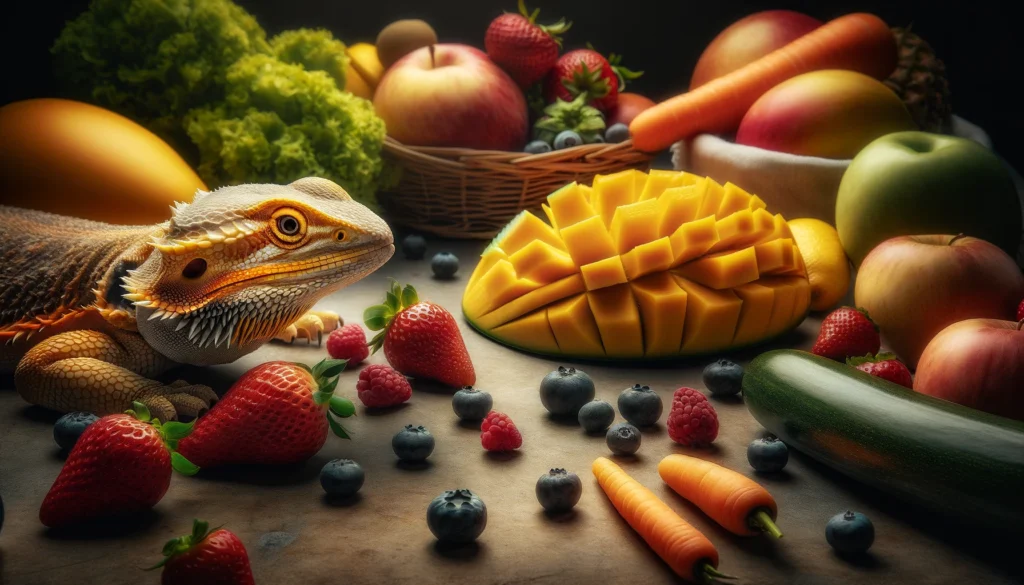
To give you a clearer picture, here’s a breakdown of the nutritional content of mangos:
Vitamin C: This vitamin boosts the immune system and aids in iron absorption. A deficiency can lead to weakened immunity and health issues.
Vitamin A: is crucial for vision, growth, and reproduction. It also supports the health of the skin and mucous membranes.
Dietary Fiber: Aids in digestion, prevents constipation, and helps maintain a healthy weight.
Vitamin B6: Plays a significant role in brain development and function. It also helps the body make serotonin and norepinephrine hormones, which influence mood.
Risks and Benefits of Feeding Mangos
While mangos offer numerous health benefits to your bearded dragon, it’s equally important to consider potential risks associated with their consumption. These succulent fruits are a powerhouse of nutrients packed with vitamins A, B, C, E, and K, contributing to your pet’s overall wellness. They also contain vital minerals such as potassium, magnesium, and calcium essential for your dragon’s metabolic functions.
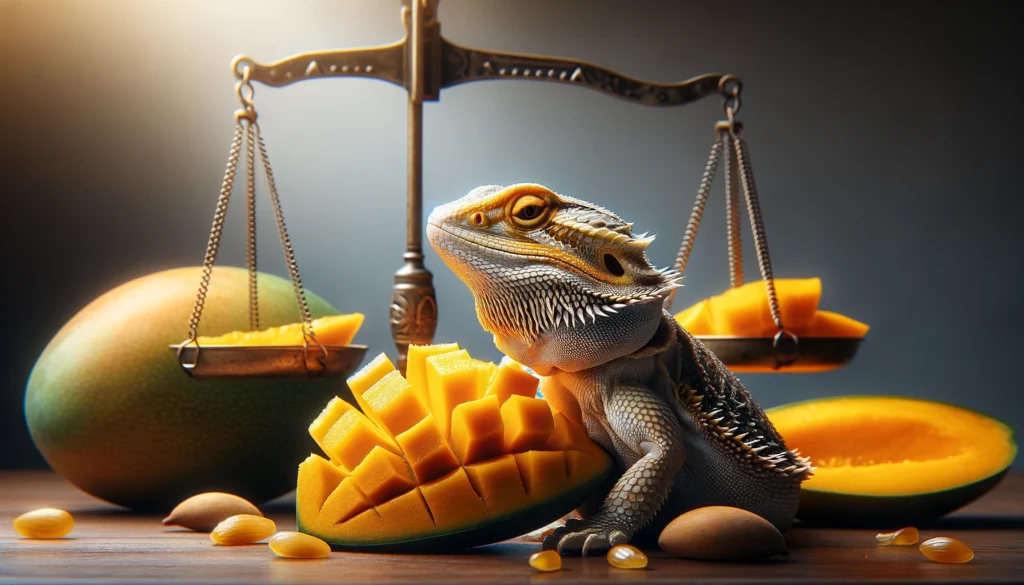
However, be wary of your pet’s mango intake. Mangos, like many fruits, are high in natural sugars. Excessive consumption can lead to obesity and other health issues. Moreover, the high water content may trigger diarrhoea if fed large amounts, disrupting your dragon’s hydration balance. It’s also worth noting that mango skins and pits are a choking hazard and can cause intestinal blockage.
Apart from these risks, feeding mangos in moderation can be beneficial. They can serve as a refreshing treat or a dietary supplement, enriching your pet’s diet with essential vitamins and minerals. But remember, variety is key in a bearded dragon’s diet, so ensure you mix mangos with other healthy food options. It’s all about balance and moderation.
Tips for Serving Mangos
Preparing mangos for your bearded dragon requires careful attention to detail, ensuring the fruit is clean, ripe, and appropriately sized for your pet’s consumption.
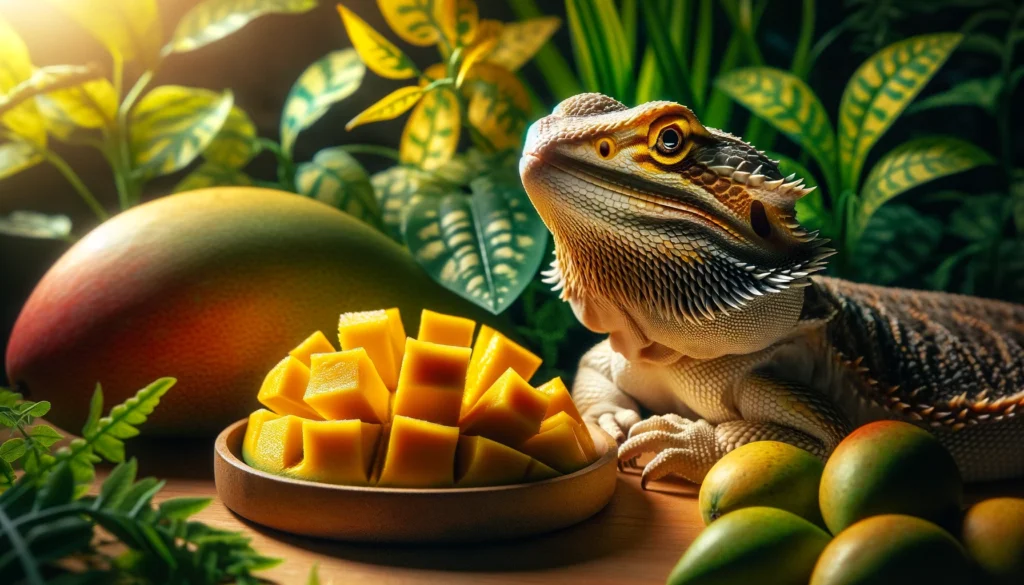
Here are some specific steps to follow:
First, thoroughly wash the mango under running water to remove pesticides and contaminants. Be sure to pat it dry afterwards.
Next, peel the mango and remove the seed. Bearded dragons cannot digest the skin or seed, so it’s essential to remove them.
Cut the mango into small, manageable pieces. Remember, the size of the food should be smaller than the space between the dragon’s eyes.
Lastly, serve the mango pieces in a shallow dish to facilitate easy access for your pet.
Despite their fondness for it, you mustn’t overfeed your bearded dragon with mangos. Too much of this fruit can lead to health issues like diarrhoea due to its high sugar content. It’s best to incorporate mangos into their diet as an occasional treat rather than a staple. With precise preparation and moderation, mangos can be a delightful addition to your bearded dragon’s diet.
Alternatives to Mango in Diet
In addition to mangos, numerous other fruits and vegetables can be included in your bearded dragon’s diet to ensure balance and variety. For instance, apples, peaches, and pears provide essential vitamins and fibre, while vegetables like bell peppers, peas, and zucchini offer a range of important nutrients.
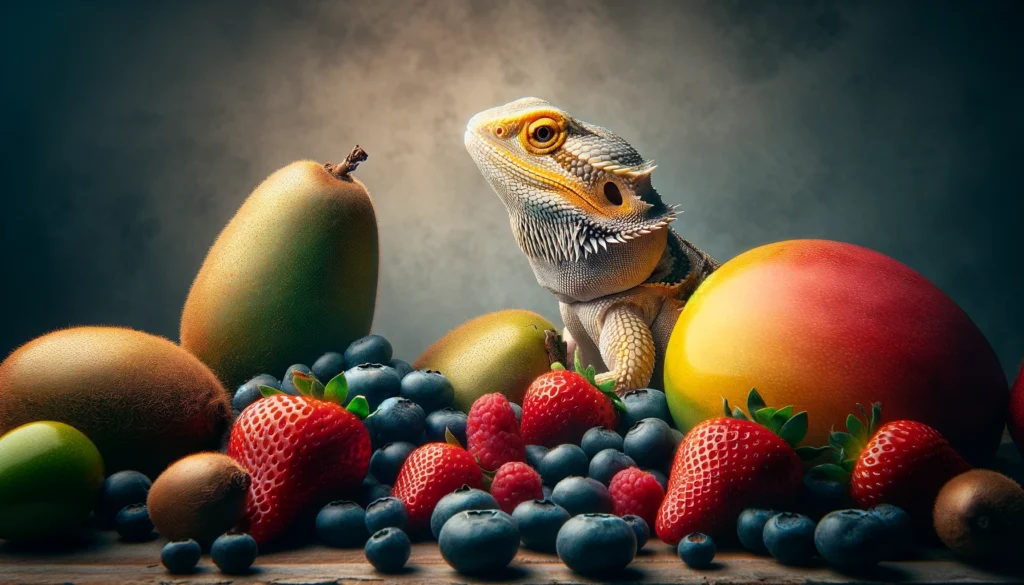
However, it’s crucial to understand that not all fruits and vegetables are suitable. Avoid feeding your bearded dragon any rhubarb, as it contains oxalic acid, which is toxic to them. Also, refrain from giving them avocado, as it’s high in fat and can cause health issues.
Ensure variety by rotating between different types of fruits and vegetables. This prevents nutritional deficiencies and keeps your pet interested in its food.
Also, remember that fruits should only comprise 10-20% of your bearded dragon’s diet. The majority should be composed of insects and leafy greens.

